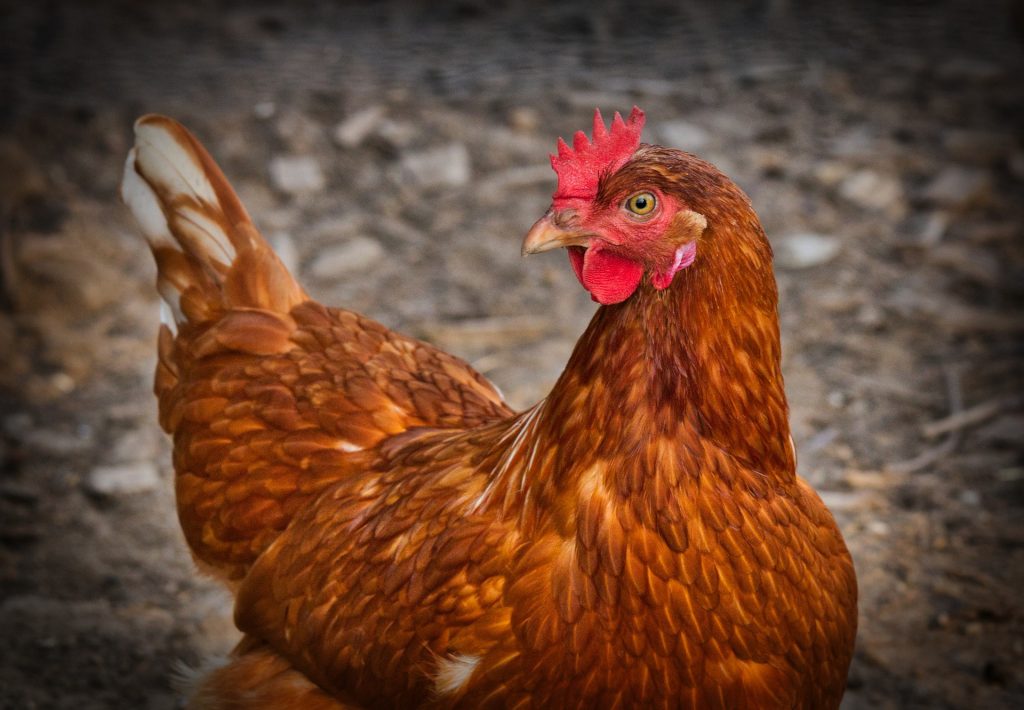Shropshire Council is urging residents and businesses who house birds, to remain alert for any signs of disease and report any cases of suspected disease immediately.
The call out follows an outbreak of Avian Flu in North Shropshire. The council’s animal health team have been notified of a new outbreak of highly pathogenic Avian Influenza H5N1 in a large commercial poultry flock near Wem in Shropshire.

A picture of a chicken
As a result a 3km Protection Zone and 10km surveillance zone has been implemented with immediate effect. Animal Health Officers will be working on scene to advise flock keepers and members of the public to be alert and take necessary precautions to help prevent the spread of the disease. Restrictions on the movement of birds in these areas will also be restricted.
Flock keepers are being asked to look for any signs of diseases whilst ensuring good levels of biosecurity at their premises. The following advice will assist you in identifying and reporting any potential cases:
Spot the signs of Bird Flu
- Unusual quietness, decreased activity levels.
- Decreased levels of vocalisation.
- Decreased levels of feed and water consumption.
- Decreased egg production.
- My bird is sick what should I do?
If you are concerned about the health of your animals, please seek advice from your vet.
Advice for bird keepers
It is currently a legal requirement to register all flocks of birds in order that information can be sent to you. Registration of flocks can be completed by the following: www.gov.uk/bird-flu
There are some simple measures poultry keepers should take to protect their birds against the threat of avian flu. These include:
- Keep the area where birds live clean and tidy, control rats and mice and regularly clean and disinfect any hard surfaces.
- Keep chickens and turkeys completely separate from ducks and geese.
- Conduct regular maintenance checks on their sheds.
- Clean moss off the roofs, empty gutters and remove vegetation between sheds where birds are kept.
- Draw up contingency plans for storing bedding and dealing with pests.
- Place birds’ feed and water in fully enclosed areas that are protected from wild birds, and remove any spilled feed regularly.
- Put fencing around outdoor areas where birds are allowed and limit their access to ponds or areas visited by wild waterfowl.
- Clean and disinfect footwear before and after entering premises where birds are kept.
- Avian influenza is not air-borne, except over very short distances. It is spread by movement of infected birds or contact with respiratory secretions and in particular faeces, either directly or through contaminated objects, clothes and vehicles.
Advice for members of the public
The UK Health Security Agency (UKHSA) advise that bird flu is primarily a disease of birds and the risk to the general public’s health is very low.
The Food Standards Agency (FSA) has said bird flu poses a very low food safety risk for UK consumers. Properly cooked poultry and poultry products, including eggs, are safe to eat.
Councillor Chris Schofield, cabinet member for planning and regulatory services expressed his concern over the situation, saying:
“This outbreak of Avian Influenza H5N1 is concerning. It is therefore crucial that all residents and businesses involved in poultry farming adhere strictly to biosecurity measures to prevent further spread. We must act with utmost caution to protect our local poultry industry and public health.”
For more information about bird flu and biosecurity, https://www.gov.uk/guidance/avian-influenza-bird-flu or phone to report any of the above symptoms in birds on 03459 33 55 77 for the Defra Helpline.
More information on the location and restriction zones can be seen via the following link: https://www.arcgis.com/apps/webappviewer/index.html?id=8cb1883eda5547c6b91b5d5e6aeba90d




